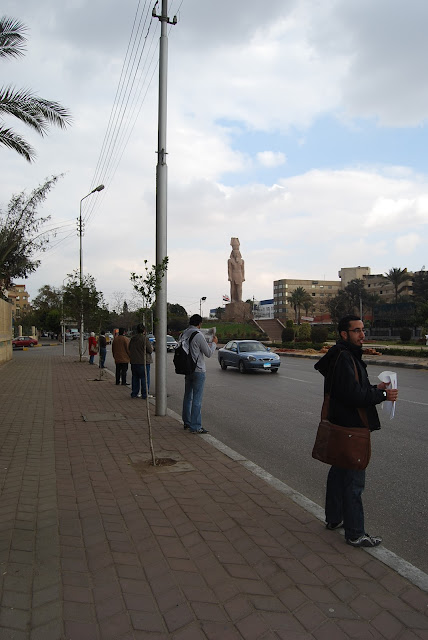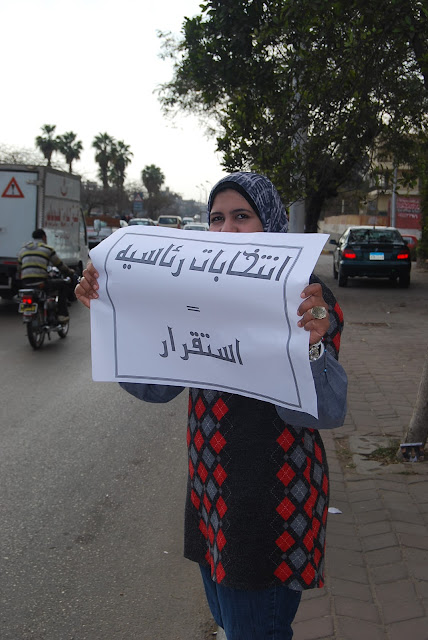A friend asked me yesterday what I'd do if I were in charge of the country. I've always found questions that begin with "what if?"exciting. What if you won the lottery? What if you could live for a thousand years? What if you were president of Egypt?
My reply was, if I was in charge, "The people would be the red line." It's a sentiment I've often heard people chant during marches in Tahrir, reflecting people's desire to see Egypt's citizens treated with respect and dignity.
My policies would put people at the heart of all its programmes ensuring the main pillars of the revolution were developed. I'd also ensure that the government, democratically elected every term, served the country and not the other way around. To see that happen, I'd start off with a constitution that stated on its cover in bold "الشعب خط احمر" that "The people are the red line." The constitution would be sealed in gold with the aim of always upholding "Freedom, Dignity and Social Justice."
My Egyptian utopia would be overseen democratically by three departments charged with fulfilling the revolution continuously. I'd hire ministers tasked with heading up these departments.
Freedom: A minister of human rights would ensure people's freedoms were safeguarded. We'd see an Egypt where citizens were treated equally no matter what their gender, ethnic, religious or sexual background. All Egyptians would be equal in front of the law. Egyptians would no longer have to live in fear of retribution for expressing their views. Police brutality would no longer be tolerated. Police officers would receive a respectable place in society again thanks to their citizen respecting philosophies. The law would encourage mutual respect.
Dignity: A minister of anti-corruption would be tasked to clean up politics, media, business and the justice system. It would ensure the abuse of power was no longer feasible. The main foundation for that would have to be a fair independent justice system. The clean up would ensure corruption was no longer tolerated offering people equal opportunities and a dignified status as citizens of Egypt.
Social Justice: A minister of development would implement policies and programmes promoting a modern 21st century economy, where jobs, education, healthcare, farming, technology, tourism and the environment were advanced with social justice at the core.
Finally, Tahrir would always serve as a place for reflection and protest ensuring those in power are held accountable.
















































